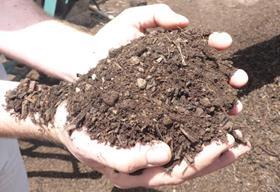
A dual traffic light and MOT system is being trialled to help growers monitor and improve soil health as part of an AHDB research partnership.
Using a red, amber and green graded framework to monitor soil health indicators, a scorecard is in use at six research farms across Britain. Results in red require growers to stop and investigate, while green means they should continue to monitor.
In addition, a simpler soil MOT is being trialled and validated, to guide farmers and growers as they check their land.
The MOT provides a guide to carry out nutrient analysis, an earthworm count and a visual evaluation, while measuring soil pH levels as well as organic matter content. Growers can then understand whether their soil is healthy and what work needs to be done.
The two-part system draws on more than 30 years of insight, however it takes up to 100 years to form just two to three centimetres of soil, with Britain having more than 700 different soil types, home to 27 species of earthworm.
AHDB resource management scientist Amanda Bennett said: “Britain’s soil is the food production engine to fuel our growing population. However, it needs nutrients and maintenance to keep it running well.
“That’s difficult when there are so many different soil types and conditions across the country. Knowing what supports growth and keeps the land healthy becomes more of a challenge.
'Just like our transport network, our farmers and growers can be helped by a colour-coded system so they have confidence to continue, or know when they need to stop and try a different method.
“Organic matter is contained within soil and it’s more than half carbon, so carrying out a check similar to an MOT will help farmers to fuel growth, lock-up carbon and protect our environment while they produce food.
“The ultimate goal in developing this is that anyone should be able to follow a simple method to better understand the condition of soils in their fields or even their garden, and identify areas where they can make improvements, if required.”
The work has been carried out as part of the GREATsoils programme through which almost £6 million of funding has been already been committed to soil research partnerships.
The AHDB is also exploring molecular techniques such as DNA testing to improve knowledge of soil biology alongside more traditional soil health measurements.
“This a more technical system to help us shape a measurement which farmers and growers can use no matter where they are based,” Bennett said.
The soil MOT will be launched when feedback from farmers and growers has been received, allowing time for crop rotation and treatments to be measured.
To see the latest version of the soil ‘traffic light’ scorecard and to find out how to measure soil organic matter, visit theGREATsoils page.



